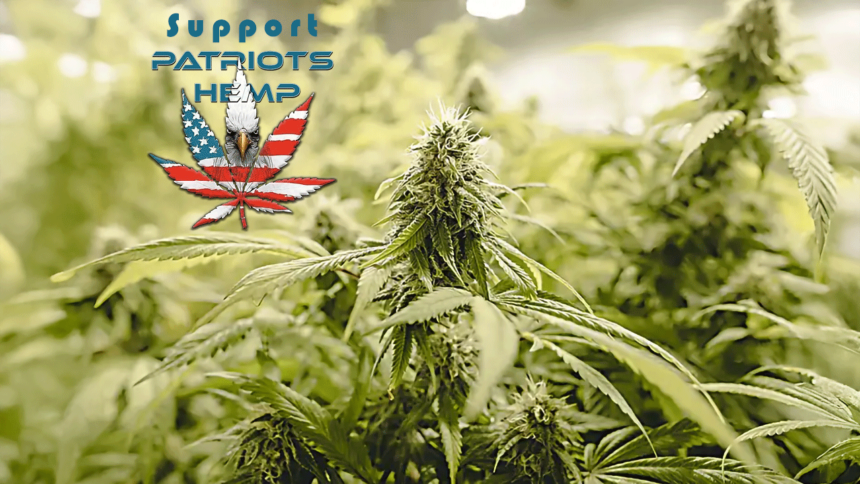The CEO of a major marijuana company says she’s confident Florida Gov. Ron DeSantis (R) will respect the will of the people and implement a legalization initiative if voters approve it at the ballot this November—even if he is currently campaigning against it and as another top state official is arguing that a recent car crash allegedly involving cannabis is reason to vote against the measure.
Kim Rivers, the chief executive of the multi-state cannabis operator Trulieve that’s financially supporting the Smart & Safe Florida campaign, also discussed efforts to strategically target advertisements to build support for the legalization measure amid recent polling that has cast doubts on its prospects of passage.
In an interview with The Dales Report on Friday, Rivers again challenged surveys that have been released in the weeks since the Florida Supreme Court cleared the initiative for ballot placement. She reiterated that internal polls show the measure passing with a comfortable margin, despite the steep 60 percent threshold required to approve a constitutional amendment.
Asked about DeSantis’s recent comments opposing the proposal, Rivers said she isn’t convinced that the governor’s position is “100 percent policy-based,” and the campaign may be facing the criticism because its a “byproduct” of the administration’s opposition to a separate abortion rights measure that the court also allowed to appear on the ballot following an unsuccessful challenge.
“I think there’s a lot of strategic conversation right now happening on abortion, and then I think that we’re a little bit of a byproduct of that,” she said. “I do think that Governor DeSantis historically has been absolutely a man who I think will continue to stand behind the will of the people once they’ve spoken.”
“Look, I mean, getting over 60 percent of the electorate to vote in favor of anything is a tall feat,” Rivers said, adding that “we will have to go through implementation, but I do not expect or anticipate that Governor DeSantis would put up massive roadblocks post-approval in November.”
She also discussed the recent launch of several advertisements in support of the campaign that are meant to educate voters and help close the gap ahead of Election Day. She said the media campaign “is primarily focused in certain areas of the state where we know, based on our data analytics, that there are a lot of folks who are persuadable.”
“Really, right now, we’re leaning into those messages that we’ve already test-messaged with a series of polls and questions and focus groups to just see, again, are they actually effective and moving folks off of maybe a likely yes or a neutral to all the way yes or in-the-bank voters,” she said. “So right now the goal for the short-term is to increase that number of in-the-bank voters—to get that as high as possible.”
“We know during campaigns that once negative advertising starts, the number will naturally slip some, so you want to have that starting point as high as possible,” she said.
Thank you to @TheDalesReport for having me on this morning to talk Schedule 3, #YesOn3 campaign in Florida and of course all things @Trulieve!
And if you want to get involved in the Florida movement for cannabis access please follow @SmartandSafeFl and sign up for alerts and… https://t.co/IWiFKNIFED
— Kim Rivers (@rivers_kim) May 17, 2024
Smart & Safe Florida separately announced in March that it was working to form a coalition of veterans to build voter support for the reform, and the campaign has since formally launched that initiative.
While opposition advertising might not have launched yet, state officials have made clear that they’re against the legalization measure. That includes, most recently, Florida Chief Financial Officer Jimmy Patronis (R).
Speaking with WESH 2 News last week, Patronis said a recent vehicular accident that killed eight people, involving a driver who allegedly used marijuana and various prescription drugs including a benzodiazepine, should motivate people to vote against the cannabis measure.
“There are eight lives that are never going to see their parents again because somebody was abusing a substance that he may have even gotten illegally,” he said, adding that while he recognized the medical value of cannabis for certain patients, he’s a “hard no” on adult-use legalization.
“I would err on the side of caution and vote no. Right now, just allowing the voters to go and make it recreational,” he said. “To me, that’s like giving a 9-year-old kid the keys to the candy store. They will abuse it and take advantage of it in ways that are not in the best interest of their well-being.”
The Florida Republican Party also officially come out against a marijuana legalization initiative this month, clearing the way for DeSantis to raise money to fund an opposition campaign against the measure.
DeSantis also previously predicted voters will reject the marijuana initiative in November and argued that passage would “reduce the quality of life” in the state.
Whether the officials’ comments against the measure sway voters in a meaningful way is yet to be seen. But while the campaign and companies backing the measure remain optimistic about its prospects this November, recent surveys continue to raise questions about that possibility.
For example, a survey that was done for the Florida Chamber of Commerce by Cherry Communications found that 58 percent of Florida likely voters back the legalization measure, compared to 37 percent who oppose it and five percent who are undecided. As Rivers pointed out last week, however, the chamber has actively opposed the initiative.
While the campaign hasn’t shared its internal polling, it is the case that prior surveys have shown the initiative in a more comfortable position than the two most recent public polls did. A University of North Florida (UNF) poll released last November found nearly 70 percent of voters are in favor of the reform, for example.
—
Marijuana Moment is tracking more than 1,500 cannabis, psychedelics and drug policy bills in state legislatures and Congress this year. Patreon supporters pledging at least $25/month get access to our interactive maps, charts and hearing calendar so they don’t miss any developments.![]()
Learn more about our marijuana bill tracker and become a supporter on Patreon to get access.
—
Economic analysts from the Florida legislature and DeSantis’s office, estimate that the marijuana legalization initiative would generate between $195.6 million and $431.3 million in new sales tax revenue annually if voters enact it. Those figures could increase considerably if lawmakers opted to impose an additional excise tax on cannabis transactions that’s similar to the ones in place in other legalized states.
If approved, the measure would change the state Constitution to allow existing medical cannabis companies in the state, such as Trulieve, the campaign’s main financial contributor, to begin selling marijuana to all adults over 21. It contains a provision that would allow—but not require—lawmakers to take steps toward the approval of additional businesses. Home cultivation by consumers would not be allowed under the proposal as drafted.
Adults would be able to purchase and possess up to one ounce of cannabis, only five grams of which could be marijuana concentrate products. The three-page measure also omits equity provisions favored by advocates, such as expungements or other relief for people with prior cannabis convictions.
Nearly all of the campaign’s financial backing has come from existing medical marijuana businesses, predominantly multi-state operators. Recently, the Florida Division of Elections (DOE) released the campaign finance activity report from the first quarter of the year, showing nearly $15 million in new contributions.
Trulieve, the main financial backer of the initiative, led the pack again with $9.225 million in donations during the first quarter. That follows the company previously contributing about $40 million as advocates worked to collect more than one million signatures to qualify for ballot placement.
The company’s CEO also said recently that, contrary to the governor’s claims, legalization could actually “improve quality of life” for residents.
Here’s what the Smart & Safe Florida marijuana legalization initiative would accomplish:
- Adults 21 and older could purchase and possess up to three ounces of cannabis for personal use. The cap for marijuana concentrates would be five grams.
- Medical cannabis dispensaries could “acquire, cultivate, process, manufacture, sell, and distribute marijuana products and marijuana accessories to adults for personal use.”
- The legislature would be authorized—but not required—to approve additional entities that are not currently licensed cannabis dispensaries.
- The initiative specifies that nothing in the proposal prevents the legislature from “enacting laws that are consistent with this amendment.”
- The amendment further clarifies that nothing about the proposal “changes federal law,” which seems to be an effort to avoid past legal challenges about misleading ballot language.
- There are no provisions for home cultivation, expungement of prior records or social equity.
- The measure would take effect six months following approval by voters.
Here’s the full text of the ballot title and summary:
“Allows adults 21 years or older to possess, purchase, or use marijuana products and marijuana accessories for non-medical personal consumption by smoking, ingestion, or otherwise; allows Medical Marijuana Treatment Centers, and other state licensed entities, to acquire, cultivate, process, manufacture, sell, and distribute such products and accessories. Applies to Florida law; does not change, or immunize violations of, federal law. Establishes possession limits for personal use. Allows consistent legislation. Defines terms. Provides effective date.”
Despite his opposition to the initiative, DeSantis, a former GOP presidential candidate who dropped out of the race in January, previously accurately predicted that the state’s highest court would ultimately allow the measure on November’s ballot.
DeSantis also weighed in on another relevant cannabis policy issue earlier this year when, while still a presidential candidate, he said that he doesn’t believe the federal gun ban for state-legal marijuana consumers is constitutional. Florida’s former agriculture commission, Nikki Fried, brought a lawsuit against the Biden administration over the rule, though the governor did not get involved.
Prior to dropping out, DeSantis also said that if elected president, he would “respect the decisions that states make” on marijuana legalization despite his personal view that the reform has a “negative impact.”
Photo courtesy of Philip Steffan.





















